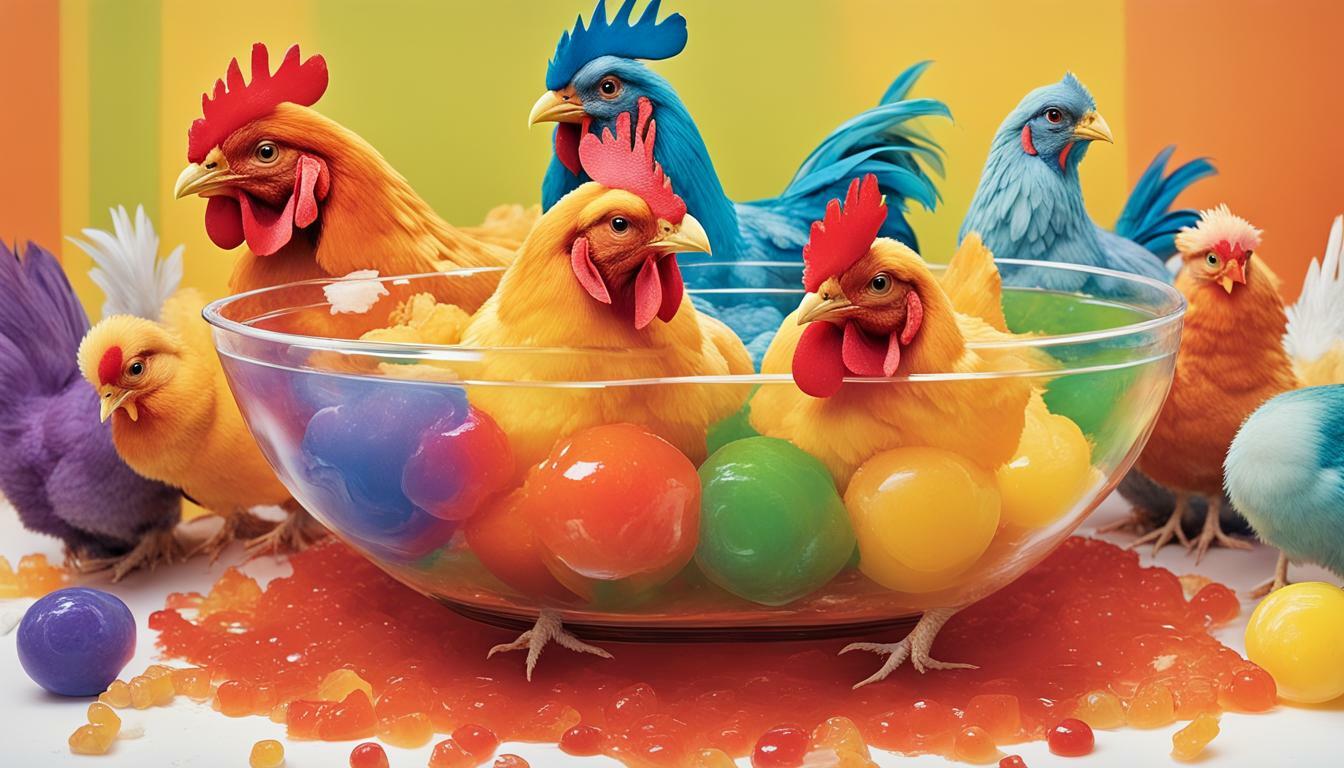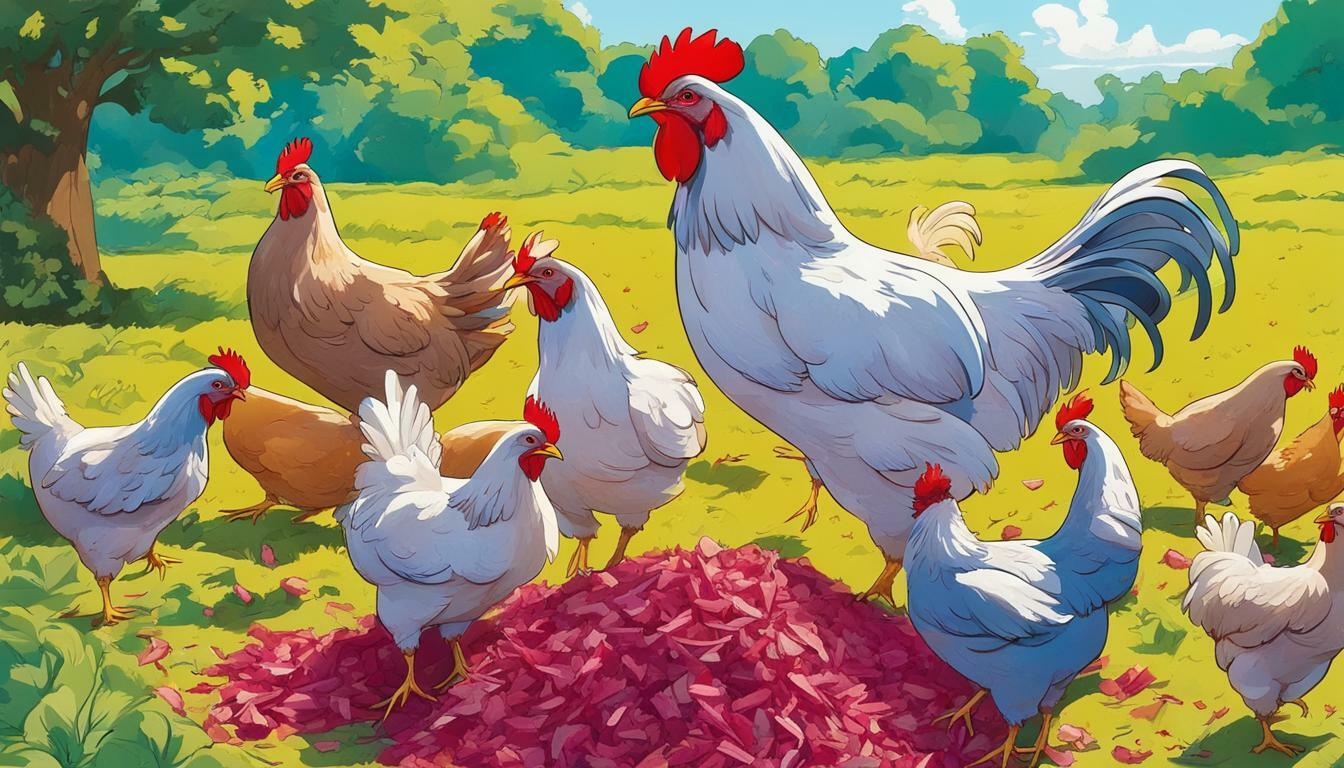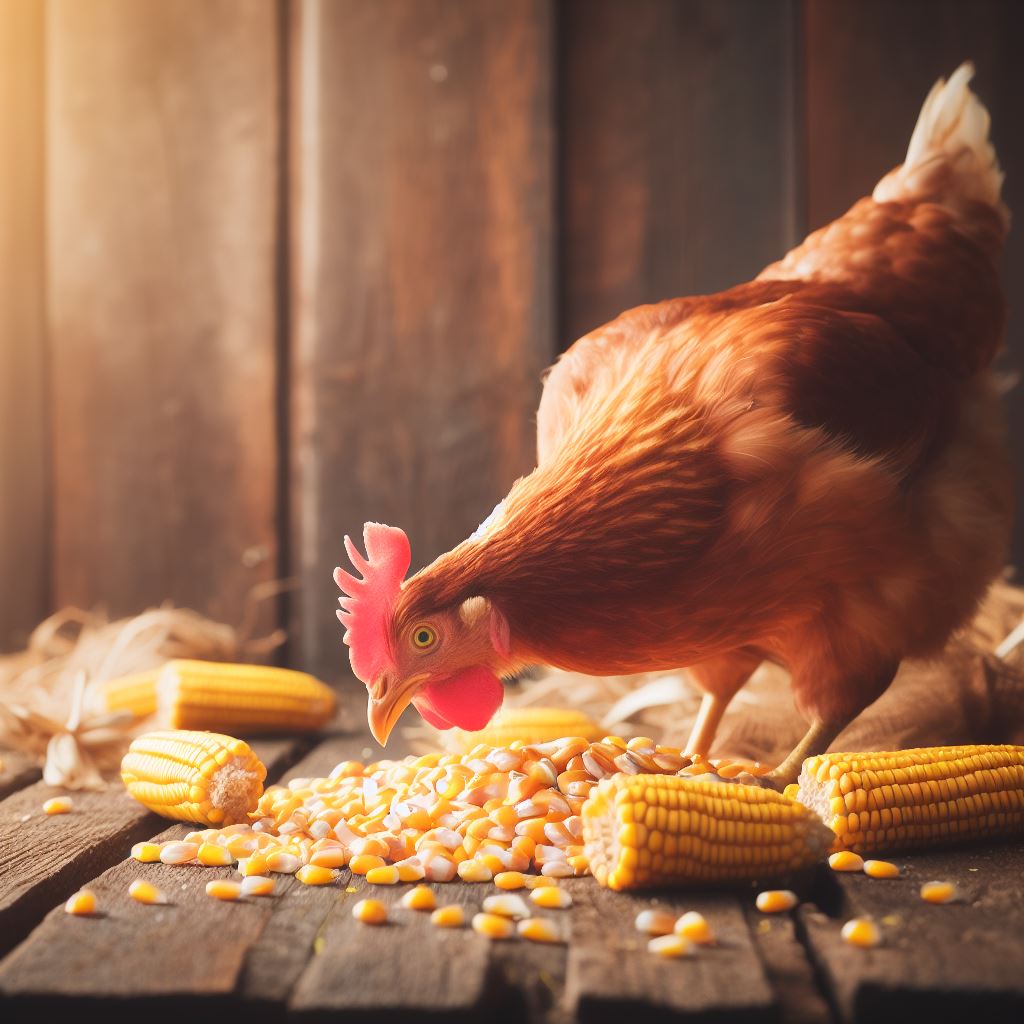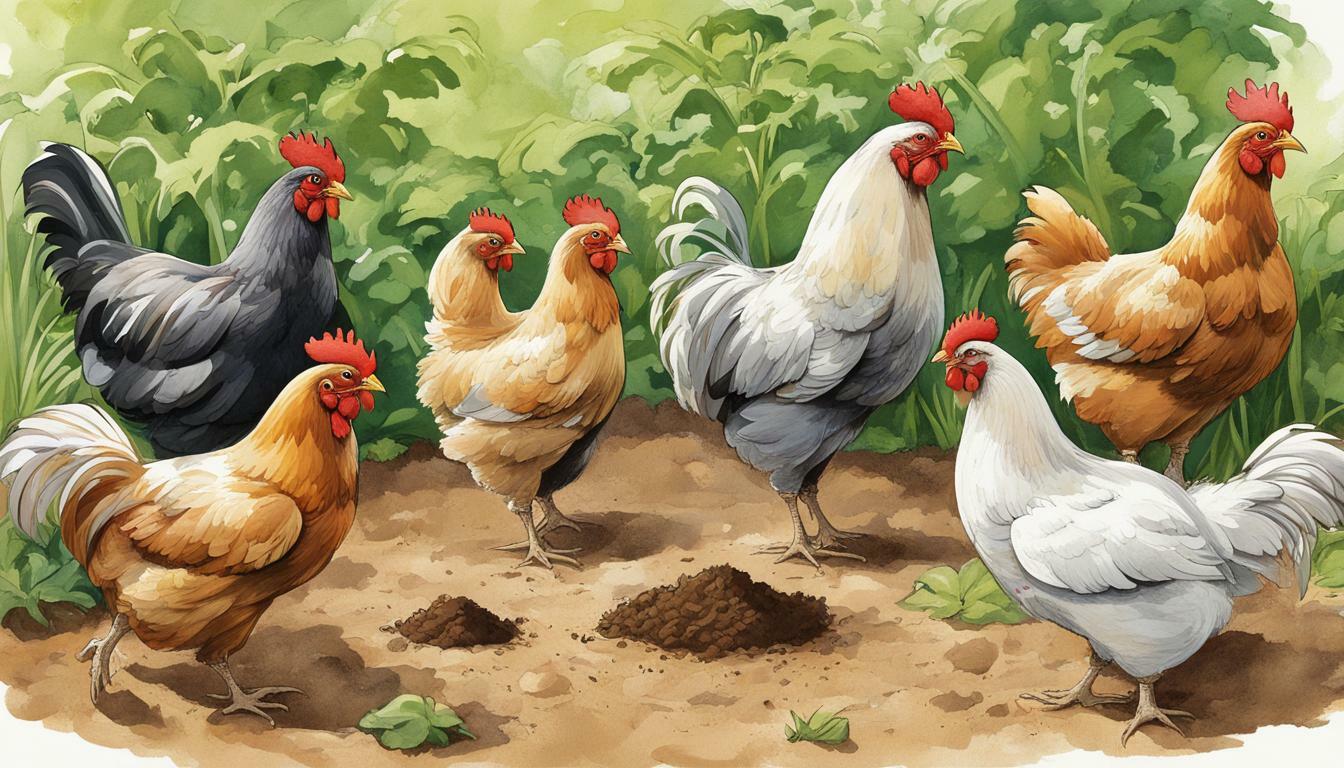Can Chickens Eat Jello? Discover the Surprising Facts!

Table of content:
Jello is a popular gelatin-based dessert that comes in a variety of fun colors and flavors. But can chickens eat jello? Is this tasty treat safe and healthy for chickens to enjoy? As a chicken owner, it’s important to understand what human foods are safe to feed your flock. In this article, we’ll take an in-depth look at whether jello is good for chickens and things to keep in mind when considering treating your chickens to this wiggly snack.
Is Jello Safe for Chickens?
The first question many backyard chicken keepers have is: is jello safe for chickens to eat? The answer is yes, in moderation jello can be a safe treat for chickens. Jello is made from gelatin, which comes from collagen typically extracted from the bones and connective tissues of cows and pigs. This collagen goes through a process called hydrolysis to produce glycine, an amino acid that forms gelatin.
When hydrated and chilled, gelatin forms the familiar jiggly solid we know as jello. The gelatin itself is safe for chickens to consume and provides some nutritional value. Gelatin is largely protein and contains amino acids like glycine that are healthy additions to a chicken’s diet.
However, most jello also contains sugar and food dyes, which should be limited in a chicken’s diet. Too much sugar can cause digestive upset and feed aggressive behaviors in the flock. Artificial dyes provide no nutritional value and may be unsafe at high quantities.
So as an occasional treat, plain or naturally flavored gelatin is safer for chickens than heavily sugared and dyed jello. Monitor your chickens after feeding jello and discontinue use if you observe adverse effects.
What Are the Benefits of Feeding Chickens Jello?
While jello should not make up a significant portion of a chicken’s diet, there are some potential benefits to offering small amounts as a supplemental treat. Here are a few of the positives:
- Gelatin contains amino acids like glycine that are good protein sources. The collagen in gelatin provides health benefits.
- Plain, unsweetened jello adds some variety and excitement to a chicken’s diet without unnecessary additives.
- Fun jello shapes, colors, flavors and wiggles can enrich a chicken’s sensory experience.
- Gelatin may support joint health and egg production thanks to its collagen content.
- Hydrating gelatin forms a thick texture that may help chickens swallow other treats or medications.
In moderation, jello can provide nutritional variety, mental enrichment, and hydration benefits. Just be mindful of limiting sugar and artificial additives.
What Human Foods Can Chickens Eat?
Beyond jello, backyard chicken keepers often wonder what other human foods are safe and healthy to offer their flock. Here are some common human foods that chickens can enjoy in moderation:
- Fresh fruits like apples, berries, melons, citrus fruits and bananas make great treats.
- Fresh veggies like leafy greens, tomatoes, cucumbers, carrots, broccoli and squash add nutrition.
- Cooked potatoes, sweet potatoes, pumpkin and peas offer carbohydrate energy.
- Small amounts of plain yogurt, cheese, cooked eggs and lean meats for protein.
- Cooked beans, rice, pasta or oats for fiber and carbohydrates.
- Baked goods like muffins or cookies on occasion. Limit sugar.
Avoid overly salty, spicy or greasy human foods. Introduce new treats slowly and monitor for adverse reactions. Offer fruits and veggies raw or lightly cooked. Overall, provide 90% balanced feed and limit human foods to 10% of diet.
Will Jello Hurt Chickens?
While jello can be safe for chickens in moderation, feeding too much jello or lower quality versions with more sugar and additives does come with some risks for chickens. Here are a few potential downsides:
- Too much sugar can cause digestive issues like loose droppings or diarrhea.
- Excess sugar may also lead to more aggressive behaviors in the flock.
- Artificial dyes offer no nutritional benefit and may be harmful in large amounts.
- Sugary jello could contribute to obesity, fatty liver disease and other health problems.
- Jello sticks to chickens’ beaks and feathers, making it messy for chickens and coops.
- If chickens eat jello too quickly, it could pose a choking risk or cause crop impaction.
Overall, problems are most likely to occur if chickens frequently overindulge in sugary jello loaded with artificial additives. Offer jello infrequently and monitor chickens for adverse reactions. Remove jello if chickens show signs of illness.
What About Gelatin?
Since the base of jello is gelatin derived from animal collagen, some chicken owners wonder if it’s fine to offer plain, unflavored gelatin. Can chickens eat gelatin on its own?
The answer is yes, plain gelatin can make an excellent treat and nutritional supplement for chickens. Look for pure gelatin without added sugar, artificial colors, flavors or preservatives.
Unflavored gelatin contains protein building blocks like glycine, as well as collagen, calcium, phosphorus and other beneficial nutrients. It can provide joint, skin, feather and egg nutritional support.
The best approach is choosing a high quality beef or poultry gelatin. A quarter teaspoon per chicken once or twice a week provides health benefits without overdoing it. Always provide plenty of fresh water too.
Should You Feed Chickens Flavored or Unflavored Jello?
If you want to share jello with your flock, unflavored gelatin or naturally flavored varieties are healthier choices than artificially colored and flavored jello with lots of added sugar. Here’s a comparison:
- Unflavored gelatin – Contains just protein, collagen and amino acids. No risks of excess sugar or artificial additives. Provides nutritional benefits.
- Naturally flavored jello – Uses natural flavorings and modest amounts of sugar. Still provides some collagen benefits without unnecessary additives.
- Artificially flavored jello – Packed with artificial dyes, flavors and extra sugary sweeteners with no health benefits. Higher risks of overfeeding.
Your chickens will surely relish any fun, wiggly jello treat. But nutritionally, you’re best off choosing unflavored or lightly flavored gelatin based varieties. Skip the artificially colored and sugared varieties to limit health risks. Monitor all jello consumption and adjust as needed.
Do Chickens Like the Taste of Jello?
Chickens are naturally drawn to brightly colored, sweet foods. So for most chickens, jello seems like an irresistible treat! The fun colors and wiggly gelatin texture also attract their attention.
Chickens have color vision and can differentiate between hues including red, green and blue. Vibrant jello colors appeal to their visual senses. The unique jiggly texture also sparks their curiosity.
In general, expect chickens to readily peck at offered jello. They’ll benefit most from unflavored or naturally flavored gelatin that provides more nutrition than straight sugar and artificial dyes. But a bowl of fruity, sugary jello will most certainly entice your flock!
Should You Feed Chickens Jello As a Treat?
At the end of the day, should you feed your chickens jello occasionally as a special treat? While jello shouldn’t become a daily indulgence, the answer can be yes in moderation. Here are some tips:
- Start with a small amount – a few bites per chicken. Monitor to see how their bodies handle it.
- Choose unflavored gelatin or naturally flavored varieties over sugary, artificial kinds.
- Mix with other treats like scratch grains, chopped veggies or mealworms.
- Limit jello treats to once a week or less frequently.
- Make sure chickens always have access to their regular feed and fresh water.
- Discontinue use if you notice adverse health effects.
- Avoid letting chickens free feed on jello to prevent over consumption.
Jello can add some enrichment and nutrition to your chickens’ diet when fed responsively. Just be mindful of health risks with overindulgence. Know your chickens and adjust as needed.
Final Thoughts
Jello and gelatin can be safe for chickens in moderation but do carry some health risks when overfed. Offer small tasting portions of plain or naturally flavored gelatin for nutritional benefits. Monitor your flock’s reaction and adjust their treat feeding as needed. Limit high sugar, artificially flavored jello to occasional tidbits. Focus the majority of your chickens’ diet on quality layer feed and ample fresh water. With a balanced approach, sharing wiggly jello with your flock can provide fun and enrichment!
Welcome. I’m Adreena Shanum, the proud owner of this website, and I am incredibly passionate about animals, especially poultry. I founded adreenapets.com as a labor of love, stemming from my desire to share my knowledge and experiences with poultry enthusiasts worldwide.




